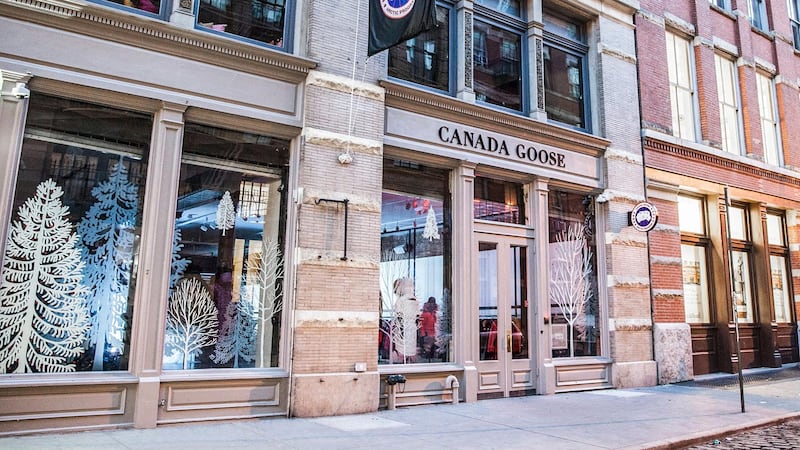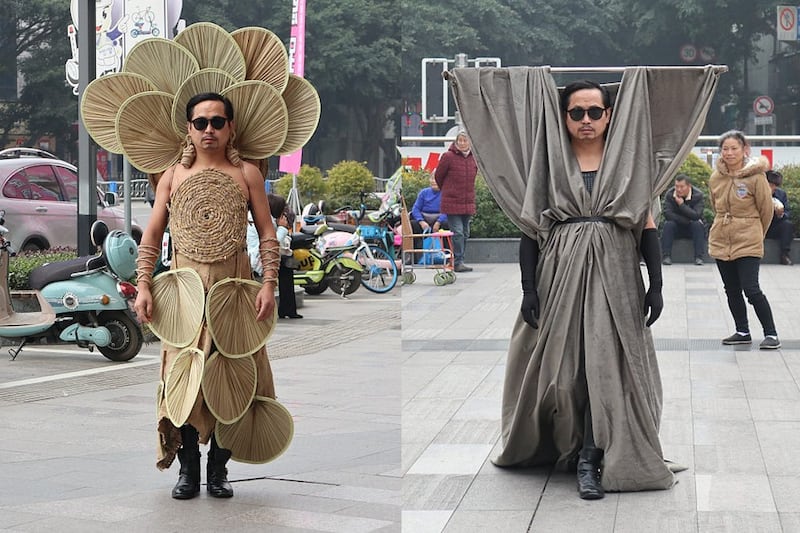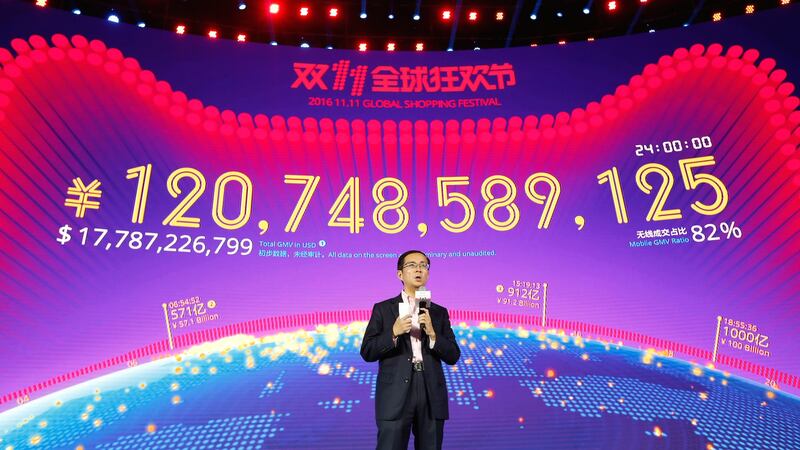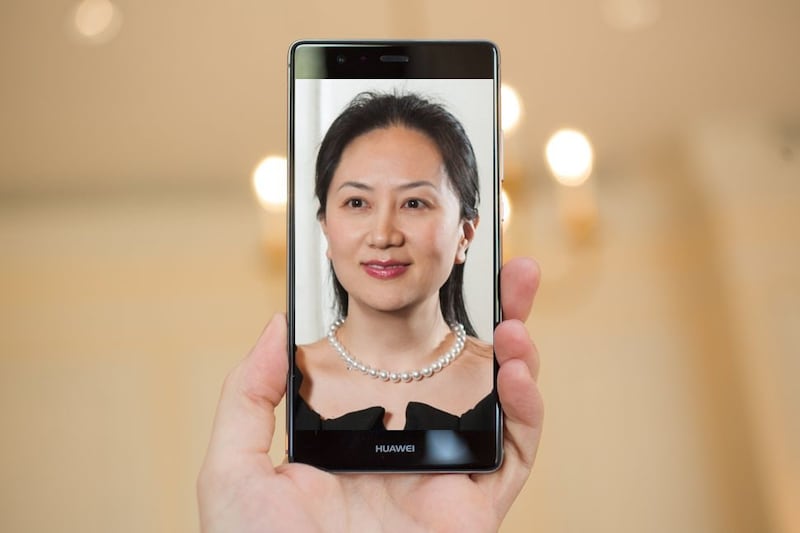
The Business of Fashion
Agenda-setting intelligence, analysis and advice for the global fashion community.

Agenda-setting intelligence, analysis and advice for the global fashion community.

Hello BoF Professionals, welcome to our latest members-only briefing. China’s colossal size and dynamism makes it a top priority for any global business, but it remains opaque to many in the fashion industry. Leveraging our rare access and local knowledge, the BoF China team demystifies the Chinese market with weekly industry analysis and the wider socio-cultural context you need to sharpen your focus.
BEIJING, China — For even the most seasoned of travel aficionados, a trip to Antarctica may seem a little excessive. But amid China's consumption upgrade, there's no such thing.
The International Association of Antarctica Tour Operators reveals that Antarctica went from welcoming 100 Chinese visitors in 2007 to over 5,000 in 2017. For China’s one percent, ‘consumption upgrade’ — an often-echoed neologism describing the country’s evolving spending habits — means spending more, spending smarter and spending for experiences. For the well-travelled, this can mean opting for icy expeditions as an alternative to traditional shopping meccas such as Tokyo and Seoul.
The phrase became Beijing’s favourite term in November 2015, when President Xi Jinping’s administration set out to transform China from a global manufacturing powerhouse — relying on a low wage labour force to produce low-added value exports — to an innovation-driven and consumption-led growth model. From lowering import tariffs and clamping down on consumers’ rights infringements to supporting innovation in consumer finance and developing consumer loans, domestic demand has been propelled to offset increasingly harsh economic headwinds.
ADVERTISEMENT
Since then, the upgrade has become China’s poster child for its buzzy spending culture. According to the China Development Forum, consumption makes up nearly 80 percent of China’s GDP growth, up from less than 50 percent eight years ago. Indeed, as disposable income rises and e-commerce eliminates borders, the upgrade has shifted national spending habits across luxury goods, beauty, household products, medical and educational expenses.
The upgrade is about getting people to spend more, even if lower income groups spend more on lower income goods.
Yet, upscale travel and fashion experiences forms only one half of the consumption upgrade equation. The term actually refers to two dynamics, according to Dr. Keyu Jin, associate professor of economics at the London School of Economics.
“There’s the increase in consumption, where Chinese consumers are spending more on travel, education, medical expenses, services and high-end consumer goods,” Jin tells BoF. “On the other hand, there’s been an increase in sales of used and low-priced consumer goods.”
Generally, the two shifts belong to separate consumer groups: the former are urban elites in China’s top tier cities such as Shanghai, Beijing and Shenzhen, while the boom in secondhand, discount and low-priced goods is concentrated among rural consumers residing in fourth to sixth tiered cities, which make up 63.5 percent of China’s total population, or 870 million people, according to Alizila, Alibaba’s company website.
The trend for lower income groups has been coined a consumption downgrade, but Jin disagrees with this distinction. “As a whole, the upgrade is about getting people to spend more, even if lower income groups spend more on lower income goods,” she says.
The key, Jin continues, lies in technology, which is "giving lower income consumers a greater opportunity to buy low price, low quality goods." Case in point, Pinduoduo: the controversial budget and group-buying app and fastest-growing e-commerce platform in Chinese history.
“Pinduoduo epitomises this consumption pattern in lower tiered cities,” says Sun Xin, a lecturer in Chinese and East Asian business at King’s College London. “It highlights the lower end of the market and targets those consumers, the key to its success.”
Pinduoduo heavily reflects consumers’ value-first mentalities. At the core of the upgrade, China’s shoppers are taking a pragmatic approach to spending, including premium brands for lower prices — a uniting factor between the otherwise disparate income groups.
ADVERTISEMENT
Brands will have difficulty if they offer neither great value nor distinctive experiences that resonate with consumers.
According to Nielsen, Vipshop and Tencent’s latest co-produced Chinese Families’ Consumption report, Chinese consumers are only going to get more sophisticated, pragmatic and rational. The report predicts the continued rise of authentic discount platforms, which will not only fulfil the pragmatism and experience needs of high income groups, but offer access to luxury brands for aspirational consumers of lower income groups.
Such is the ethos of Yanxuan, a platform selling unbranded goods claimed to be manufactured in the same factories as luxury brands, not unlike the west’s Italic. “Consumers can spend downgrade-level money to have upgrade-level quality,” says Yanxuan parent NetEase’s chief executive Ding Lei.
Even so, paying less doesn’t mean a lesser upgrade. Rural consumers are still upgrading their purchasing habits, albeit at a different level, says Jason Yu, general manager for Greater China at consumer intelligence provider Kantar Worldpanel. “Consumers in lower tier cities are trading up from bargain pieces in markets to fast fashion brands such as Uniqlo, which is opening up stores across China and using e-commerce to make products widely available.”
According to Yu, the differences between the two shopper groups ultimately means trouble for brands that sit in the middle of the spectrum. “Brands will have difficulty if they offer neither great value nor distinctive experiences that resonate with consumers.”
This will be especially pertinent for China’s experience-hungry younger consumers, who Jin argues are the cornerstone to the upgrade’s continuation. “In five years, post-90s shoppers will display higher consumption patterns as services and luxury goods become main agents of the economy,” says Jin. “Even in lower tier cities, there’s no doubt that they’ll move up the quality ladder.”
Amid taut trade war sentiment, much talk of the consumption surrounds a slowdown in the face of trade tensions with the US and cooling domestic demand. According to recent figures released by the National Bureau of Statistics, China’s retail sales growth for corporate and consumer spending fell to 8.1 percent year-on-year.
“The government has been overwhelmingly focused on the trade war, rather than having a comprehensive plan or clear policy to promote consumption,” says Sun. However, she believes that the upgrade will survive the uncertainty.
“People continue upgrading their consumption as their income increases,” Sun continues. “As long as consumers have money, consumption will grow. It’s only a matter of how fast or slow.”
ADVERTISEMENT
时尚与美容 FASHION & BEAUTY

Canada Goose store | Source: Courtesy
Canada Goose Stalls Beijing Opening Amid Huawei Fallout
Amid escalating tensions between Beijing and Ottawa, Canadian parka marker Canada Goose postponed the opening of its first mainland flagship, slated for December 15. Since Huawei chief financial officer Meng Wanzhou was arrested in Vancouver on December 1, Canada has been caught in the middle of the Sino-US fray. Though Canada Goose cited "ongoing construction" to its Beijing store as the reason for the delay, Chinese shoppers have called for a brand boycott since news of Meng's arrest surfaced, and the brand's shares have plummeted 20.6 percent since December 3 — a U-turn from being lauded as the second best performer in its country's benchmark stock index this year. Meanwhile, the brand's Hong Kong-based puffer jacket making rival Bosideng has reaped the rewards, seeing its shares soar nearly 13 percent to a five year record high. Having opened its Hong Kong flagship last month and with a Shanghai office in the works, getting caught in geopolitical crosshairs couldn't happen at a worse time for Canada Goose, and it's unclear how long the brand will have to wait for tensions to cool before it makes a splash in the market. (SCMP)
Yoho! Launches Sneaker Trading Platform UFO
Last week, Chinese streetwear empire Yoho! celebrated the launch of sneaker trading marketplace UFO (Unique Fashion Object), which in trials that commenced on Singles Day have reported inventory and trading numbers "ten times what we expected," head of UFO Li Zhe tells BoF. The platform is operated by an independent team but affiliated with the Yoho!Buy app, and hopes to make use of the latter's 20 million registered users as well as Yoho!'s market insights and brand resources. Though the western sneaker reselling market is dominated by the likes of StockX and Farfetch's newly acquired Stadium Goods, Chinese equivalents are the comparatively smaller apps Du and Douniu. With a soon-to-be-launched price curve function and authentication team, UFO has its sights set on bringing apparel, watches, and other accessories onto the platform, and meeting the demands of China's sneaker fanatics. (BoF China)
Viral Lipsticks Sell Homegrown Heritage
China's latest trending lipsticks aren't by the likes of Chanel or Armani, but rather Beijing's 93-year-old Palace Museum. Since being announced via a Weibo post on December 9, the collection of six lip shades priced at 199 yuan each (around $29) received over 1,000 orders in a night, and are the results of a partnership between the museum and Beijing-based Bloomage Biotechnology Corp Ltd. Each shade and its packaging is inspired by an object in the museum collections, cashing into a new craze surrounding the country's rich heritage and popular period dramas such as the Story of Yanxi Palace, recently crowned the world's most Googled show. Furthermore, lipsticks are a notoriously popular cosmetic item in the country, and CBNData's 2018 report on beauty trends found that e-commerce beauty consumers purchase an average of 3.3 lipsticks per year. Amid taut trade war sentiment and a slowdown in luxury consumption, the product is an affordable yet lucrative beacon of hope for the country's consumer confidence. (36Kr)
Vogue’s Menkes Apologises Amid Dolce & Gabbana Backlash
American Vogue's international editor and esteemed fashion critic Suzy Menkes was caught in the furore against Dolce & Gabbana — involving the brand's latest marketing campaign and a slew of offensive comments published on Stefano Gabbana's personal social media — after attending and reviewing the brand's presentation in Milan. Commentators and insiders alike denounced Menkes for attending and writing the piece, which compared D&G's "beautifully crafted collection" to a "Mea Culpa", and mentioned that the brand's marketing campaign was deemed racist, though she thought it merely "insensitive and stupid." Menkes posted an apology on her Instagram account on December 13 saying, "As a journalist, my job is to follow as many fashion designers as possible and report what I see," Menkes wrote. "And I am deeply sorry if words I have written have been interpreted in any way as a support for racism, which I deplore." (Ladymax)
科技与创新 TECH & INNOVATION

Dou Xiaogang's creations exhibited on Kuaishou | Source: Dou Xiaogang
Farmer’s DIY Street Couture Goes Viral
China's latest viral sensation takes the form of Dou Xiaogang, a 38-year-old farmer from Sichuan's Meishan City. Dou's claim to fame is his knack for transforming household items — from CDs to kitchenware — into avant garde creations, 300 of which he has showcased on the short video app Kuaishou to over 260,000 followers. Though he has been both praised and attacked by commentators, he hopes to bring his work to Paris one day, and revealed in an interview with local news site Guancha that the money he raises from tokens earned on the platform have gone into paying for his father's cancer treatment. Dou is one of China's many rural dwellers who are making a living on the app, which is popular with the country's lower tier cities and offers a glimpse into the comic nuances of life outside of Shanghai and Beijing, though it is unclear whether or not brands and marketers see it as a goldmine for monetisation. (Guancha)
Viral TV Dominate China’s Most Searched Terms
China's favourite search engine has published a report on the country's most searched terms of the year. According to Baidu, the most hottest queries of 2018 revolved around the World Cup, the Sino-US trade war encompassing the arrest of Huawei's chief financial officer Meng Wanzhou, and tropical Typhoon Mangkhut. Next up, there was high interest surrounding Apple's smartphone launch, followed by television shows including period drama 'The Story of Yanxi Palace' and talent show 'Produce 101', and 'Skr', Kris Wu's favourite buzzword used during the popular show 'Rap of China'. Needless to say, 2018 has been a big year for China's homegrown television productions. (Techcrunch)
Intel Links Arms With JD.com
Last week, Intel and China's second largest e-commerce marketplace announced their partnership, and plans to set up 'digitised retail joint lab' centred on redefining retail experiences with Intel's tech know-how, from vending machines to advertising. JD.com, which is backed by internet giant Tencent and only six months ago received aa $550 million investment from Google, is eyeing the global market, and hopes that the Intel partnership will be a stepping stone to providing new-age media solutions. The retail giant has already ventured into Southeast Asia with a network of its 7Fresh automated grocery stores, its latest move in a close retail arms race with arch rival Alibaba and its line-up of Hema grocery stores. (JD.com)
消费与零售 CONSUMER & RETAIL

Last year's Alibaba Singles' Day event | Source: Alibaba Group
Lukewarm ‘Double 12’ Sales Fail to Excite
Remember Singles' Day, Alibaba's flagship shopping extravaganza during which the tech giant logged $30.8 billion in sales? It's not hard to see why the festival's success would drown out that of its follow-up, the 'Double 12' festival introduced by Alibaba group 8 years ago to clear up post-Singles' Day inventory. The event, now spearheaded by Alibaba's Taobao marketplace and rival e-commerce platform JD.com, was meant to boost sales for small and medium sized merchants drowned out by November's bells and whistles. Though Taobao lured shoppers with discounts and faster delivery times (reaching the two hour mark), considering the lack of a report of sales figures from Alibaba, it is likely that 'Double 12' will continue to live in its glitzier sibling's shadow. (Baijiahao)
Chinese Economy Feels November Chill
China's economy continued its weak spell throughout November, according to data released on December 14, which estimates that fourth quarter growth will slow further. The month's growth rate — 8.1 percent — was the lowest since May 2003 despite Singles' Day's consumption spike, but analysts are predicting harder times ahead for the first half of 2019, when the brunt of US tariffs will be felt. Rattled by the data, Hong Kong and mainland stocks plummeted on Friday, with the Hang Seng Index down 1.6 percent and Shanghai's Composite Index down 1.5 percent. Evidently, this week's Central Economic Work Conference — during which Beijing will set its agenda for the Chinese financial and banking sectors — is coming at a dire time. (SCMP)
Lazada Replaces Peng Lei as Alibaba Reshuffle Continues
Alibaba-owned Southeast Asian e-commerce player Lazada announced that Pierre Poignant will replace Peng Lei as chief executive effective immediately, though Peng will remain executive chairman. The executive reshuffling was announced on December 13, only nine months since Peng (one of Alibaba's 18 founders) was appointed chief executive, and five months after Poignant was appointed group executive president after managing customer service and production as Lazada's chief operating officer. In his new role, Poignant will spearhead the platform's "strategic development into new growth pillars" — a daunting task, given Southeast Asia's saturated and competitive e-commerce climate. One of Poignant's priorities will undoubtedly be to outpace Lazada rival Shopee: a platform operated by Tencent-backed Sea that dethroned Lazada on app store rankings this year. (Linkshop)
政治,经济与社会 POLITICS, ECONOMY, SOCIETY

Meng Wanzhou | Illustration by BoF
Huawei Braves Geopolitical Headwinds to Lead 5G Charge
The Chinese telecommunications giant — most recently embroiled in the arrest of its chief financial officer Meng Wanzhou and allegations of conspiring to defraud banks and violating US sanctions against Iran — is maintaining its plans to be a global leader in 5G technology. Despite being shunned by the likes of the US, Australia and New Zealand over security concerns, Huawei's deputy chairman Ken Hu expressed his confidence in the company's advanced technology, and insists that there are no examples of the company's equipment posing threats to security in its 30 years of operation. Though Hu confirms that Huawei is on track to hit its target of more than $100 billion in revenue this year, it is unclear whether its new enemies abroad will hinder growth. (CNN)
China Launches $12.8 Billion Fund to Rival Silicon Valley
The focal point of China's innovation push and long-awaited Greater Bay Area Development Fund was launched in Hong Kong on December 12. The Beijing-backed HKD $100 billion ($12.8 billion) private equity fund will support the development of the Guangdong-Hong Kong-Macau region — coined the Greater Bay Area by the government — and is the keystone in Beijing's plans to cultivate a hub of economic activity and innovation. A few days later on December 15, Hong Kong's chief executive Carrie Lam revealed that blueprints for the plan will be revealed in early 2019. Since opening the Hong Kong-Zhuhai-Macau bridge in October, the governments have rolled ahead with infrastructure plans in the region, which involve an 'innovation corridor' connecting Guangzhou, Shenzhen, Hong Kong and Macau, and streamlining customs procedures for visitors. However, amid frictions between Beijing and Washington, the Greater Bay Area represents China's efforts to emerge as a global tech leader undoubtedly intensifies the US-China divide. (Caixin Global)
The Problem With China’s Marathon Kick
Marathons are set to become big money in China: with almost 2,000 races and 10 million runners taking part per year, the industry will be worth $17 billion by 2020. However, cracks have started to form in the country's latest craze. Shenzhen Marathon organisers recently revealed that their half-marathon was afflicted with 258 instances of cheating, and the Chinese Athletic Association rebuked the China Run marathon organiser after a member of staff interfered with the last leg of runner He Yinli's journey by attempting to shove a national flag into her hands, twice. China's thriving marathon industry could be a soft-power win for Beijing as well as fruitful opportunity for brands — 21 companies from Adidas to Hyundai sponsored this year's Beijing Marathon — but these victories will be impeded if races can't be kept clean. (SCMP)
China Decoded wants to hear from you. Send tips, suggestions, complaints and compliments to our Shanghai-based Asia Correspondent casey.hall@businessoffashion.com.
With consumers tightening their belts in China, the battle between global fast fashion brands and local high street giants has intensified.
Investors are bracing for a steep slowdown in luxury sales when luxury companies report their first quarter results, reflecting lacklustre Chinese demand.
The French beauty giant’s two latest deals are part of a wider M&A push by global players to capture a larger slice of the China market, targeting buzzy high-end brands that offer products with distinctive Chinese elements.
Post-Covid spend by US tourists in Europe has surged past 2019 levels. Chinese travellers, by contrast, have largely favoured domestic and regional destinations like Hong Kong, Singapore and Japan.